Comprehensive Comparison of Gas vs Electric Water Heaters
When it comes to choosing between a gas or electric water heater, it's important to know the differences between these two options. In this article, we will analyze the pros and cons of both gas and electric water heaters, so you can make an informed decision that best suits your needs. Ultimately, the choice between a gas or electric water heater depends on your specific circumstances and preferences. Consider factors such as energy efficiency, availability of gas supply, upfront costs, and maintenance requirements. Research thoroughly and weigh the pros and cons before making a decision. For water heater replacement in Murfreesboro, it's advisable to consult with a trusted HVAC professional who can assess your needs and recommend the best option for your home. They will have the expertise to guide you through the decision-making process and ensure a seamless installation or replacement.

How do electric water heaters work?
Electric water heaters work by utilizing an electrical heating element to heat the water. When the hot water faucet is turned on, cold water from the supply enters the tank through a dip tube. Inside the tank, the electric heating element heats the water to the desired temperature. As the water heats up, it rises to the top of the tank, where it is available for use. On the other hand, the cold water sinks to the bottom of the tank and gets heated until it reaches the desired temperature. The heated water is then delivered to the desired location for use, such as a shower or faucet. Electric water heaters usually have a thermostat that regulates the temperature of the water and helps maintain a consistent temperature throughout usage. Overall, electric water heaters are a reliable and efficient option for providing hot water for various applications.

What are the benefits of electric water heaters?
Choosing an electric water heater can offer several benefits. Electric water heaters are a popular option for homeowners due to their efficiency, convenience, and safety features.
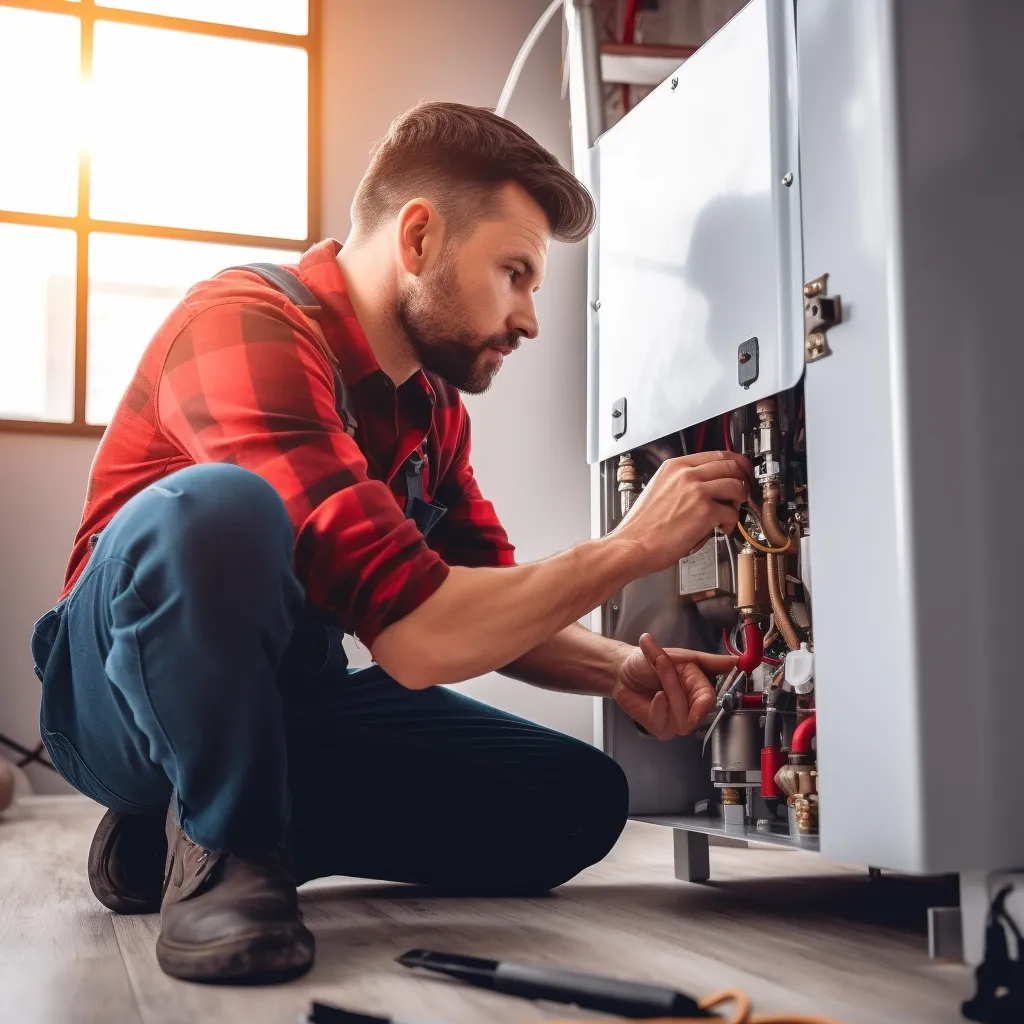
One of the key advantages of electric water heaters is their energy efficiency. These units are designed to heat water quickly and effectively, helping to minimize energy waste.
In comparison to gas water heaters, electric models have higher energy factor ratings, meaning they convert a larger percentage of electricity into hot water. This can result in lower utility bills and long-term cost savings for homeowners.
Another benefit of electric water heaters is their convenience. Unlike gas water heaters, which require a natural gas supply or propane tank, electric water heaters are powered by electricity. This means you don't need to worry about gas lines or fuel delivery.
Electric water heaters can be easily installed in various locations, including basements, utility rooms, or even closets, making them flexible and versatile for different home setups.
Electric water heaters are also known for their safety features. With an electric unit, there is no risk of gas leaks or combustion-related accidents. Electric water heaters utilize heating elements to heat the water, eliminating the need for an open flame. This can provide homeowners with peace of mind, knowing that their water heating system operates safely within their home.
What are the disadvantages of electric water heaters?
Electric water heaters have their fair share of disadvantages:
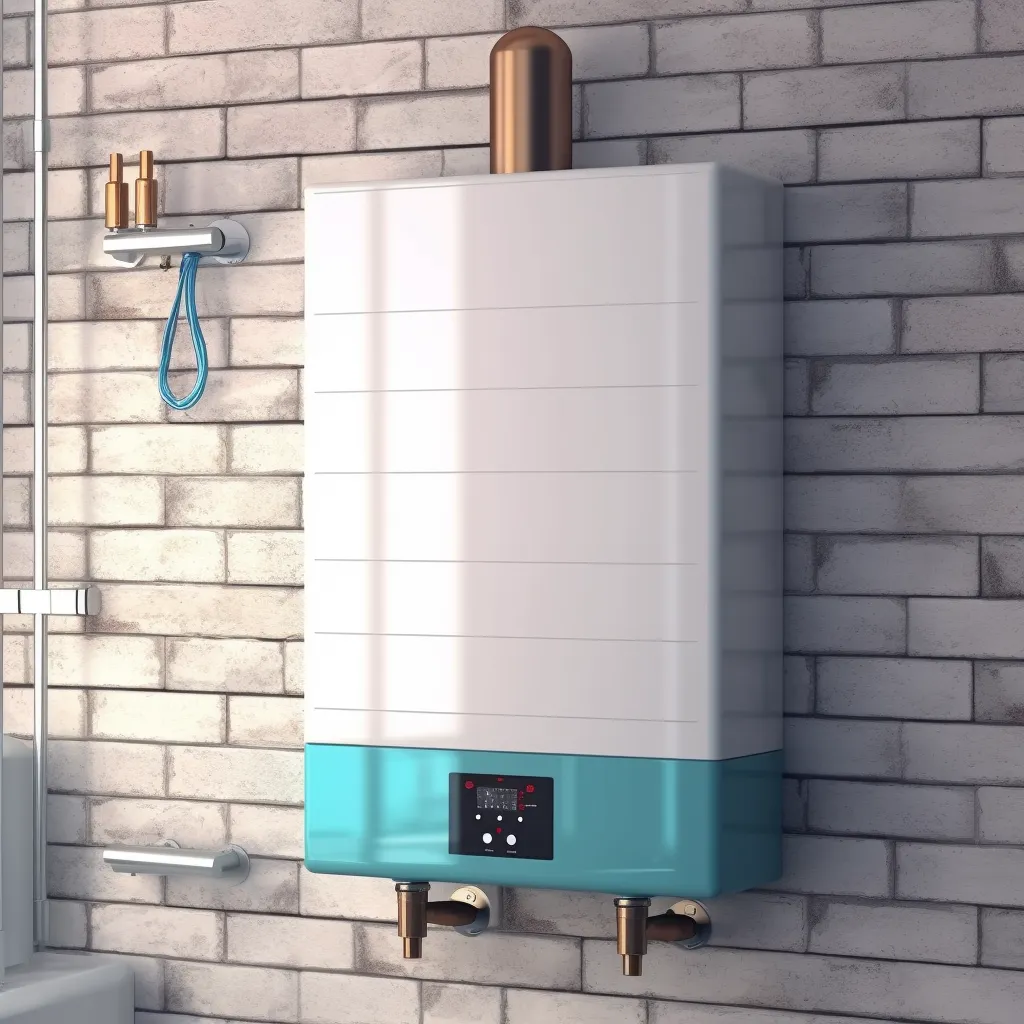
One major drawback is their higher energy consumption compared to other types of water heaters. Due to their reliance on electrical power, electric water heaters tend to consume a significant amount of electricity, resulting in higher energy bills for homeowners.
Another disadvantage is the rate of heat transfer. Electric water heaters are known to have slower heat transfer rates compared to other types of heaters, such as gas or solar-powered systems. This can lead to a longer waiting time for hot water, especially during peak usage periods when multiple household members are trying to use hot water simultaneously.
Electric water heaters also have limited capacity and recovery time. The storage tanks of these heaters can hold a limited amount of hot water, which may be insufficient for larger households or during periods of high water demand. The recovery time for electric water heaters to heat and store more hot water can be longer, causing delays in meeting hot water needs.
Electric water heaters can be less environmentally friendly compared to alternative types of heaters. The higher energy consumption results in increased carbon emissions and contributes to a larger carbon footprint for households using electric heaters.
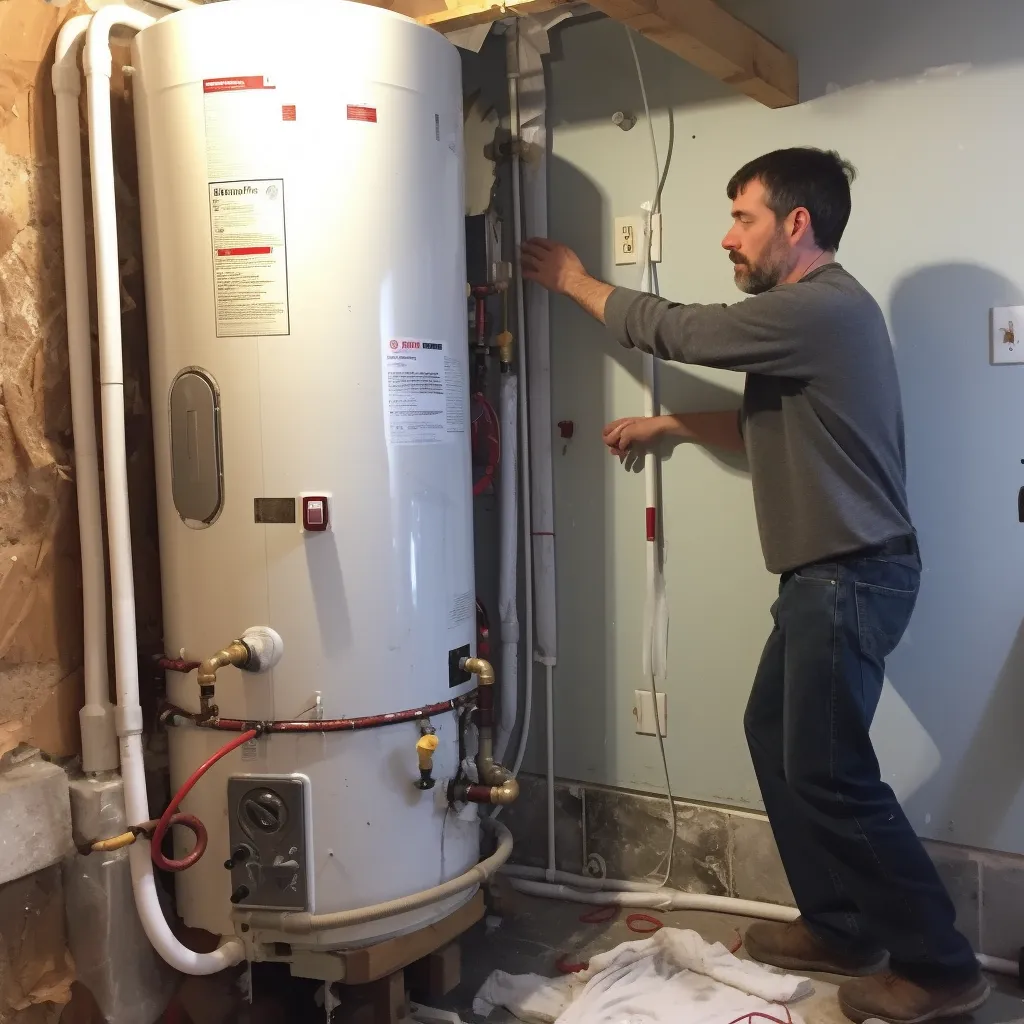
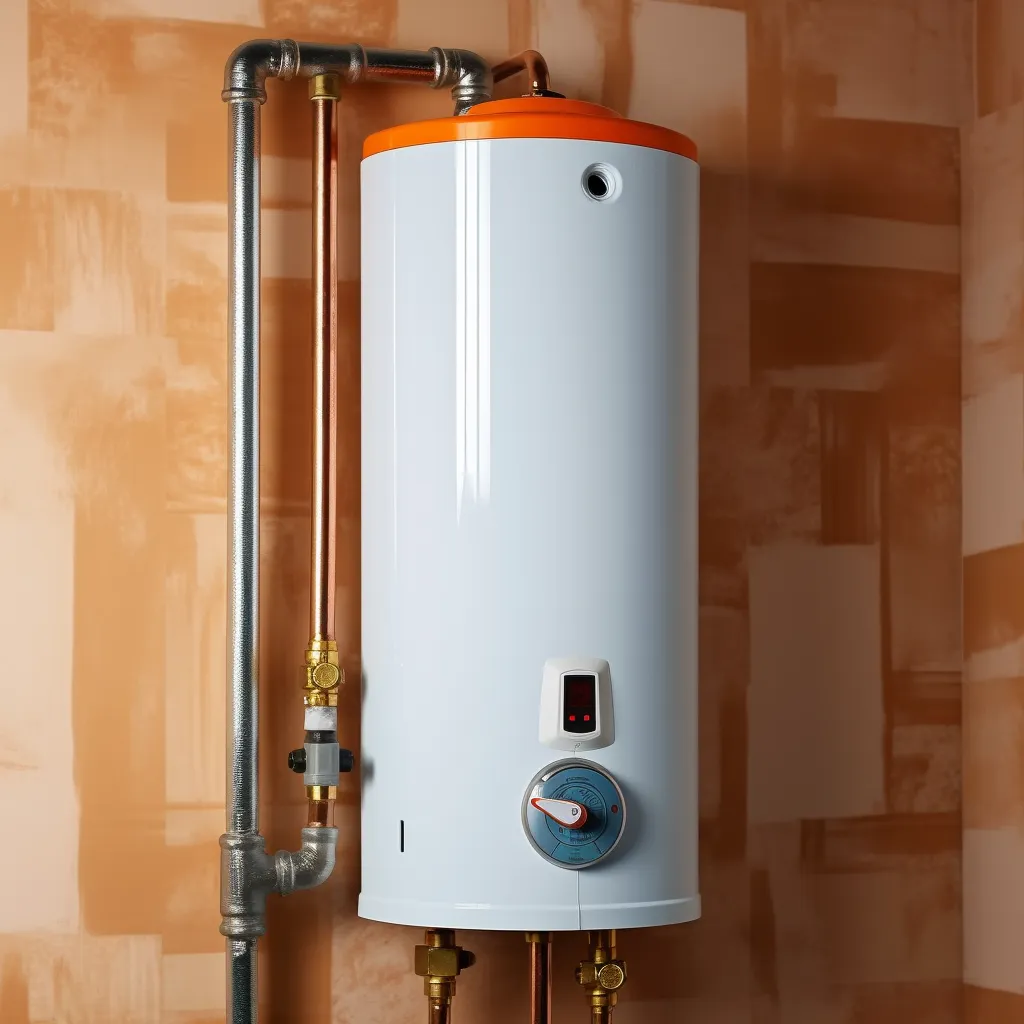
How do gas water heaters work?
Gas water heaters work by utilizing natural gas as a fuel source to heat water. The operation begins when the thermostat in the water heater senses that the temperature of the water has dropped below the desired level. This triggers the gas control valve, which opens to allow natural gas into the burner assembly. Once the gas reaches the burner assembly, it is ignited by a pilot light or an electric igniter. The burning gas creates a flame, which heats up the bottom of the water heater tank. As the water in the tank is heated, it rises to the top of the tank, and the cooler water from the bottom of the tank replaces it. This process continues until the water reaches the desired temperature set by the thermostat. To maintain the efficiency of the gas water heater, it is equipped with a flue pipe. The flue pipe helps to channel the combustion gases produced by burning natural gas out of the water heater and safely vent them outside the house. This exhaust system is crucial as it prevents the accumulation of potentially dangerous gases, such as carbon monoxide, inside the living space.
Pros of gas water heaters
Gas water heaters have several advantages over other types of water heaters. Here are some of the advantages of gas water heaters:

Energy Efficiency: Gas water heaters are known for their high energy efficiency. They use natural gas or propane as fuel, which is a relatively low-cost and efficient source of energy. This means that gas water heaters can heat water quickly and effectively, resulting in lower energy consumption and reduced utility bills.
Fast Recovery Rate: Gas water heaters have a fast recovery rate, which means they can provide a steady supply of hot water. This is especially beneficial for households with high hot water demands, as gas water heaters can quickly heat water to meet the needs of multiple users simultaneously.
Cost-Effective: Due to their energy efficiency, gas water heaters can offer significant cost savings over time. While the initial installation cost may be slightly higher compared to electric water heaters, the lower energy consumption can result in long-term savings on utility bills.
Reliable Performance: Gas water heaters are known for their reliable performance. They can consistently deliver hot water on demand, ensuring a continuous supply of hot water for various household tasks such as showering, bathing, and dishwashing.
High BTU Output: Gas water heaters typically have a higher BTU (British Thermal Unit) output compared to electric water heaters. This higher BTU rating allows gas water heaters to heat water more quickly and efficiently, making them suitable for larger households or households with high hot water demands.
Independence from Electricity: Gas water heaters do not rely on electricity to operate, making them a reliable option during power outages. This is particularly advantageous in areas that experience frequent power interruptions or in emergency situations.
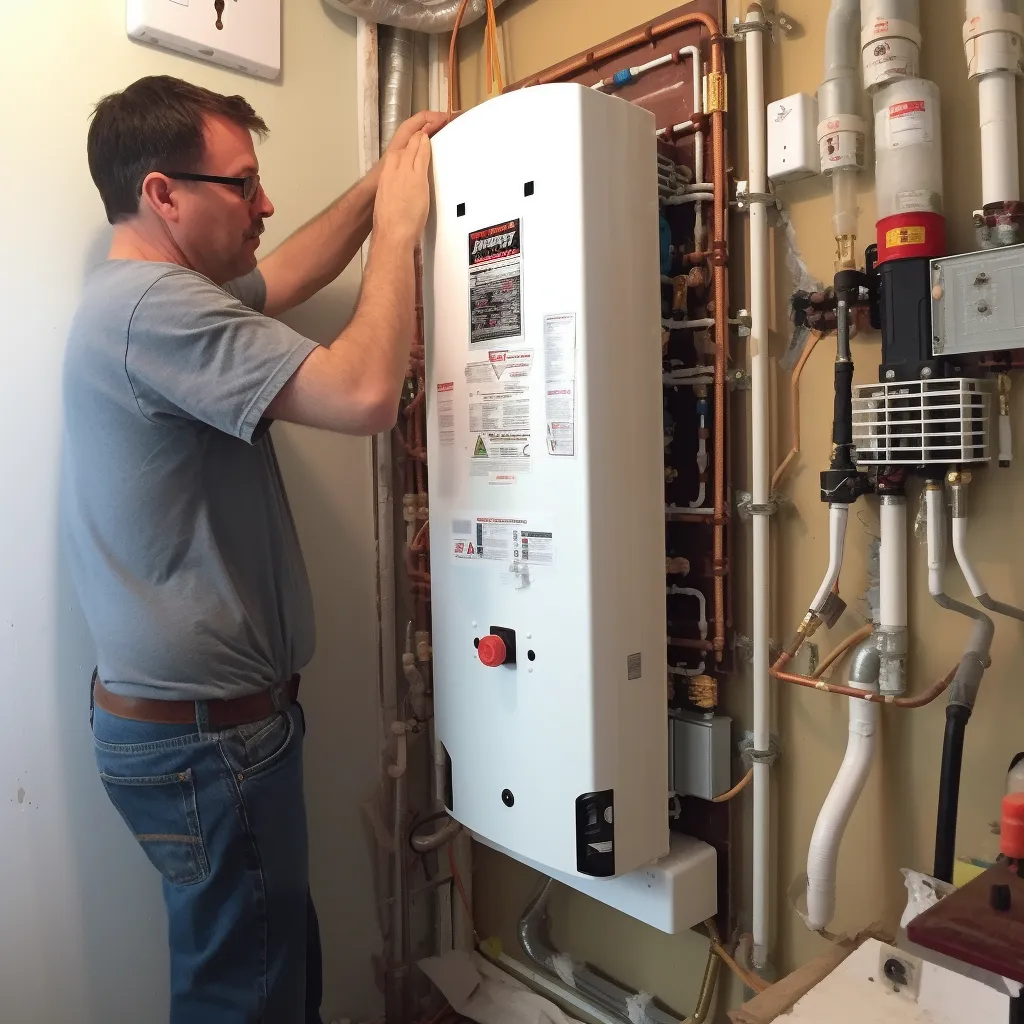
Cons of gas water heaters
Gas water heaters, despite their many benefits, also come with a few drawbacks:
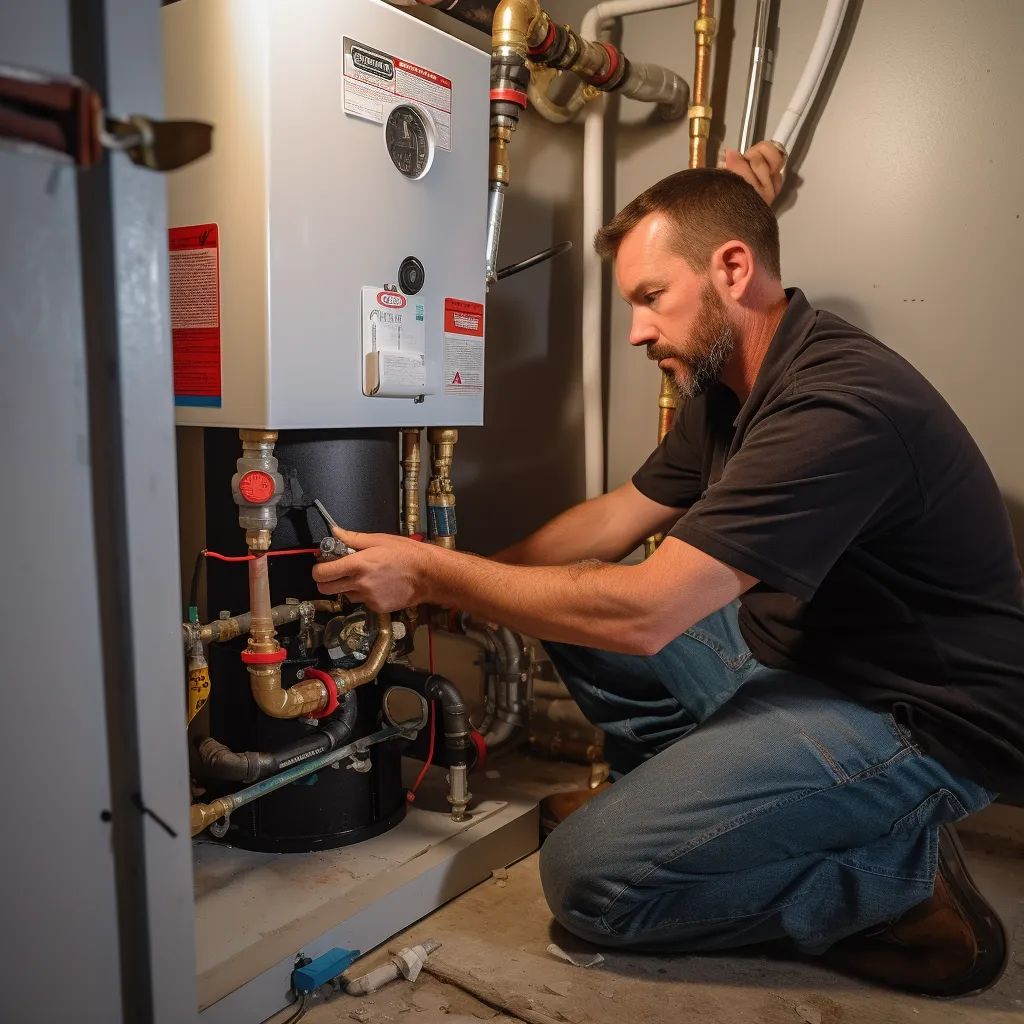
Higher upfront cost: Gas water heaters tend to be more expensive to purchase and install compared to electric water heaters. This cost can be a deterrent for some homeowners, especially those on a tight budget.
Limited availability of gas supply: One major drawback of gas water heaters is that they require a natural gas supply. If your home does not already have a gas line, you may need to invest in the installation of one, which can add to the overall cost of replacing your water heater.
Higher maintenance requirements: Gas water heaters have more complex components and mechanisms compared to electric models. This means they may require more frequent maintenance and be more prone to breakdowns. Regular inspection and servicing are necessary to ensure their proper functioning and safety.
Carbon monoxide risks: Gas water heaters produce combustion gases, including carbon monoxide (CO). While modern units have safety features to prevent CO leaks, improper installation or maintenance could lead to potential health hazards. It is crucial to have a professional technician handle the installation and regular inspections.
Less energy-efficient: Gas water heaters have lower energy efficiency compared to electric models. Although they heat water more quickly, they may consume more fuel and produce higher greenhouse gas emissions. However, advances in technology have led to more energy-efficient gas water heater options available in the market today.
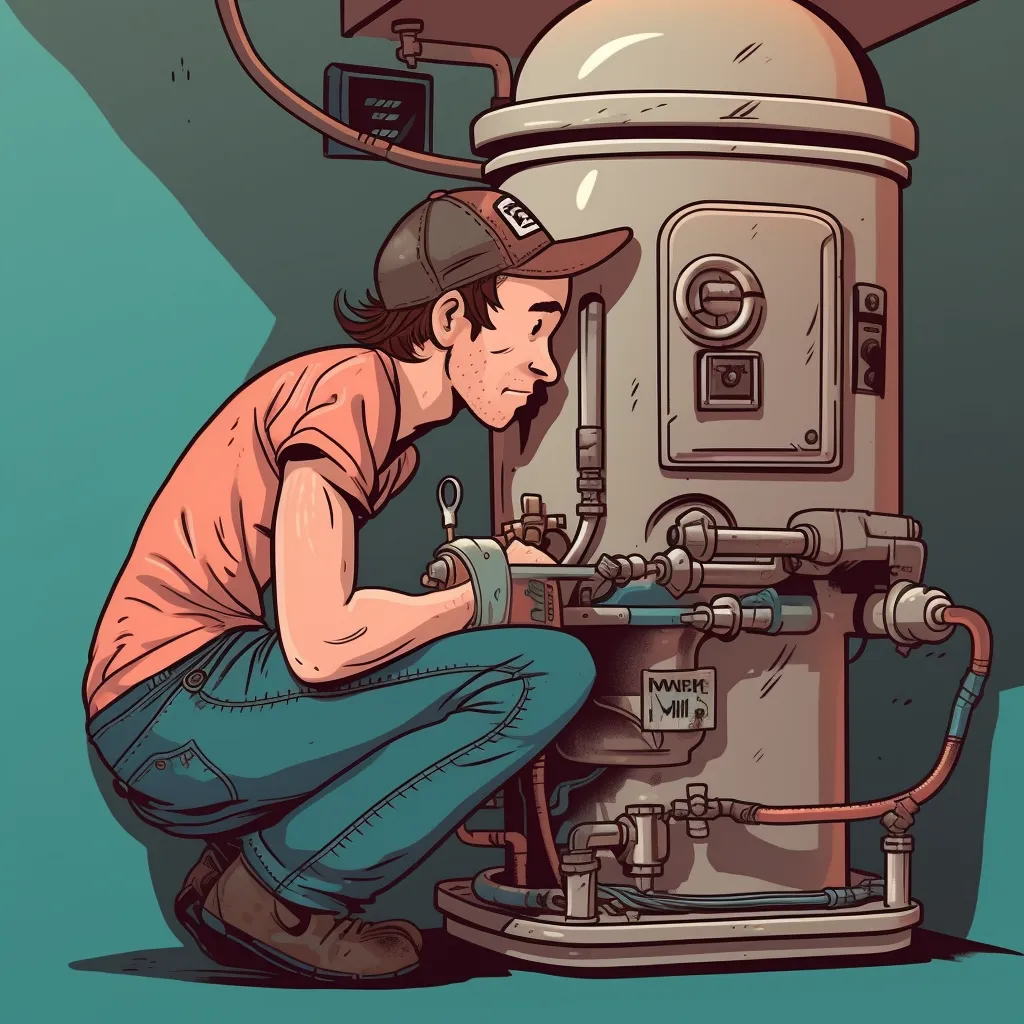
How energy-efficient are electric water heaters?
Electric water heaters can be energy-efficient, particularly if they are newer models that have been designed with energy-saving features. These features can help to reduce energy consumption and lower utility bills. However, the energy efficiency of an electric water heater can also depend on various factors, including its size, insulation, and usage patterns. When considering the energy efficiency of an electric water heater, it is important to look for models that are ENERGY STAR certified. ENERGY STAR certification indicates that the water heater meets strict energy efficiency guidelines set by the Environmental Protection Agency (EPA). These guidelines ensure that the water heater operates efficiently and uses less energy compared to conventional models. To further improve energy efficiency, Murfreesboro homeowners can consider using a timer or a demand-response controller with their electric water heater. These devices allow users to schedule the water heater to operate during times when electricity rates are lower or when hot water is needed. By optimizing the usage patterns, energy consumption can be reduced, resulting in lower energy bills. Additionally, proper maintenance of an electric water heater is crucial for ensuring its energy efficiency. Regularly inspecting and cleaning the heating elements, checking the insulation, and flushing any sediment buildup can help the water heater function at its best.
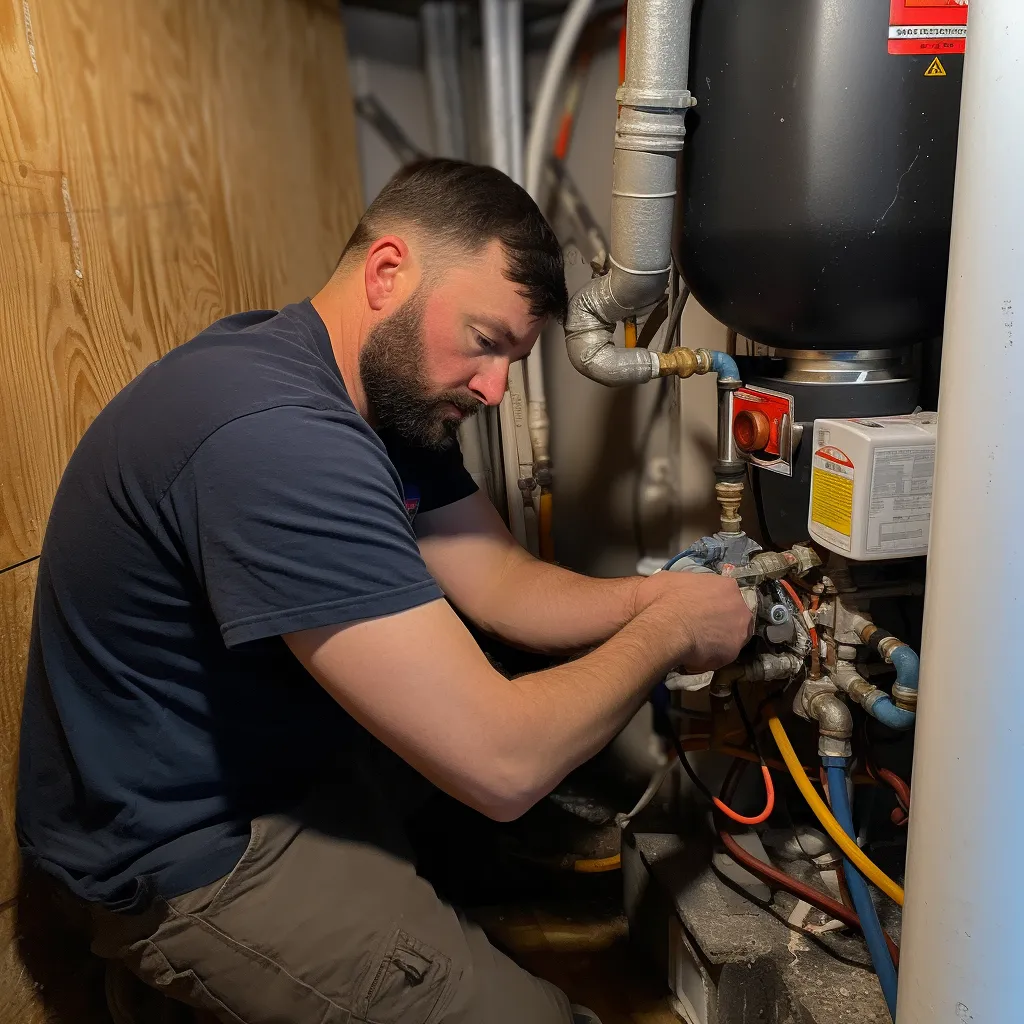
How energy-efficient are gas water heaters?
Gas water heaters are known to be energy-efficient. Compared to other types of water heaters, such as electric ones, gas water heaters can provide higher energy efficiency and lower operating costs. In a gas water heater, natural gas or propane is used to heat the water. This allows for faster heating times and a more consistent supply of hot water. Gas water heaters also have a higher recovery rate, meaning that they can heat more water in a shorter amount of time. Additionally, gas water heaters tend to have a longer lifespan than electric ones. With their energy efficiency and cost-saving benefits, gas water heaters are a popular choice for homeowners looking for reliable and efficient hot water solutions.
What is the cost of buying and installing electric water heaters?
Electric water heaters can vary in cost depending on factors such as the capacity, brand, and features. On average, you can expect to spend anywhere between $500 and $1,500 to purchase and install an electric water heater. Keep in mind that this estimate may not include any additional costs related to installation materials, labor fees, or any necessary modifications to your home's electrical system. To get an accurate estimate for your specific needs, it is best to contact a professional water heater replacement service in Murfreesboro. They can assess your requirements and provide you with an estimate tailored to your situation.

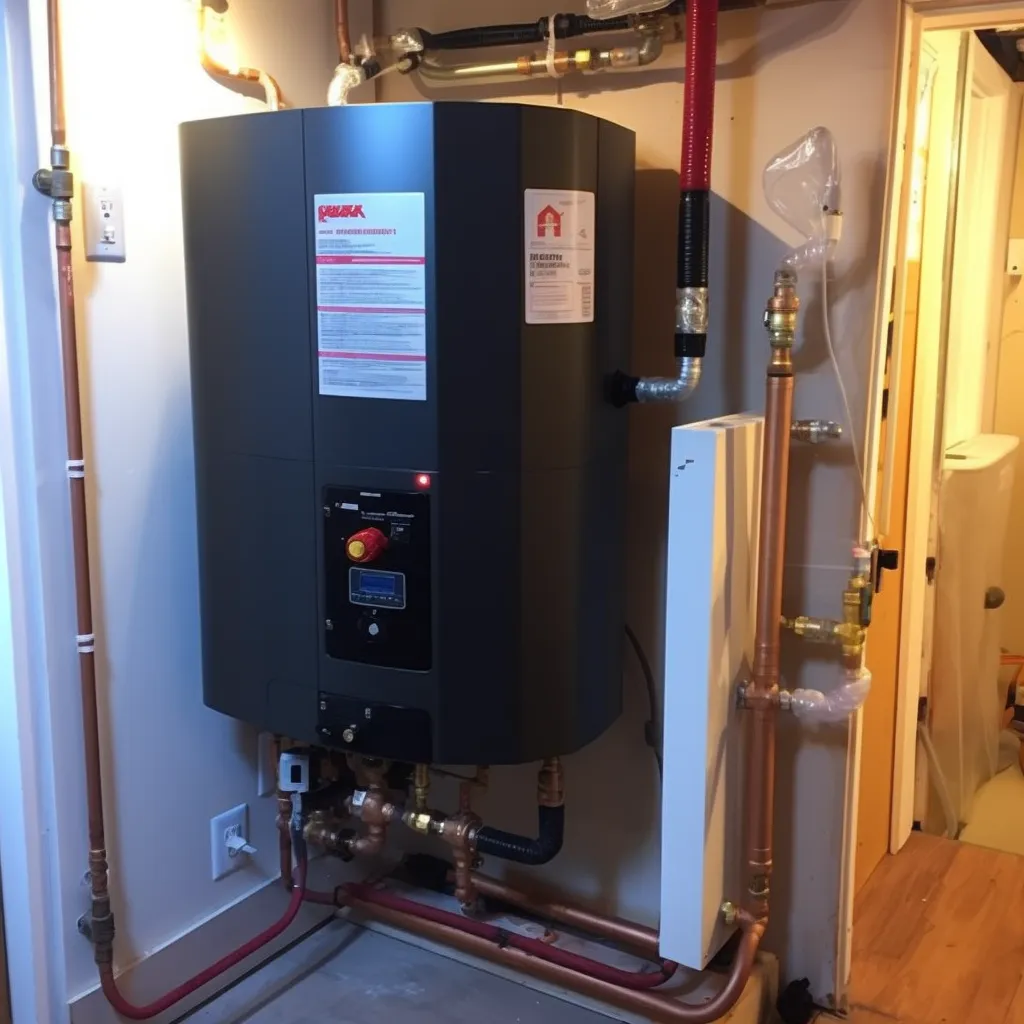
What is the cost of buying and installing gas water heaters?
Gas water heaters are a popular and cost-effective choice for homeowners looking for an efficient and reliable hot water supply. The cost of buying and installing a gas water heater can vary depending on various factors, such as the brand, size, and specific features of the unit. On average, a gas water heater can range in price from $500 to $1,500. When it comes to installation costs, it is crucial to hire a professional plumber with experience in gas water heater installation. The installation costs typically include labor, materials, permits, and any necessary modifications to the existing plumbing system. In general, the installation expenses can vary between $500 to $1,500, depending on the complexity of the project and the location of the water heater. It's important to keep in mind that these cost estimates are only approximate and can vary depending on individual circumstances. To get an accurate estimate for your gas water heater installation, it is recommended to contact a local plumbing professional who can assess your specific needs and provide a detailed quote.
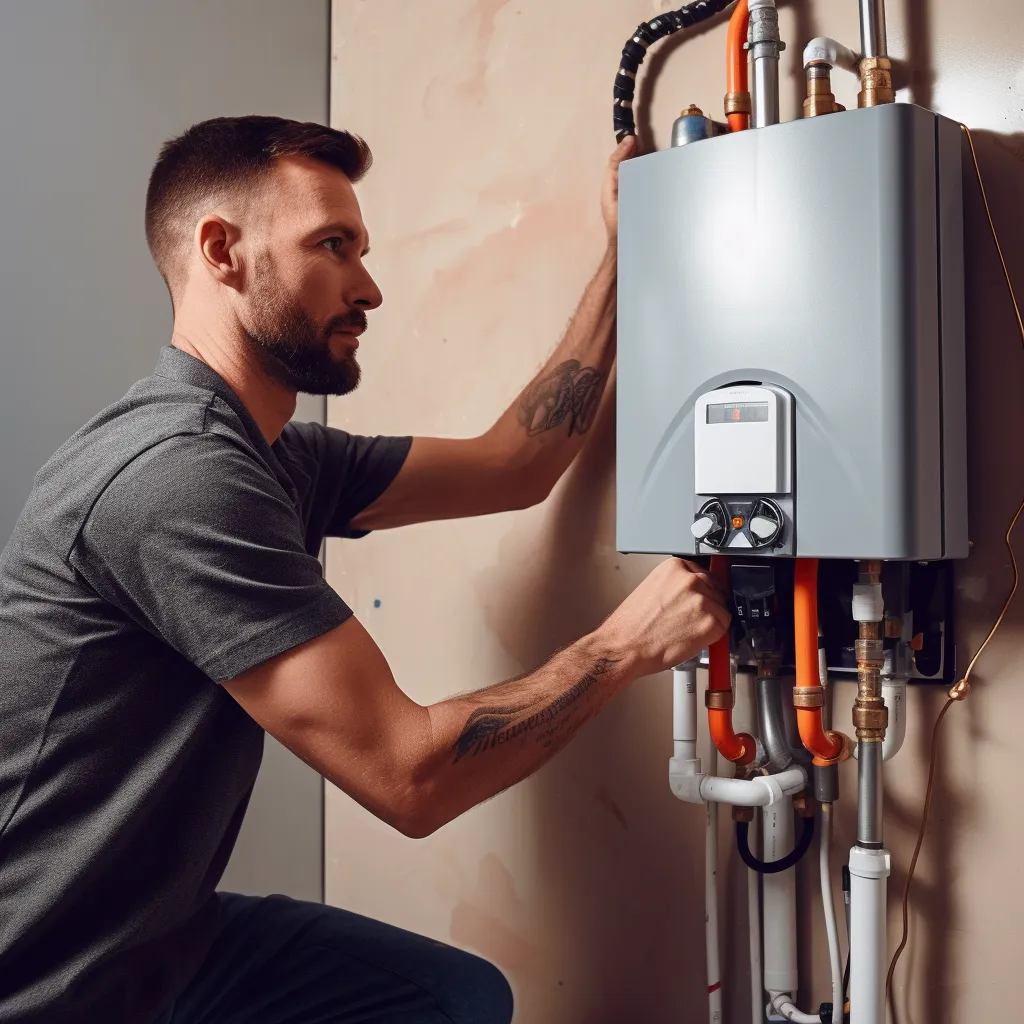
Maintenance needs of electric water heaters
Regular maintenance is essential to ensure the optimal performance and longevity of your electric water heater. One of the most important maintenance tasks for an electric water heater is flushing the tank annually. Over time, sediment and mineral deposits can build up at the bottom of the tank, reducing its efficiency and potentially leading to corrosion. By draining and flushing the tank, you can remove these impurities and prevent them from causing any damage. Another maintenance task is checking and replacing the anode rod if necessary. The anode rod is a sacrificial component that helps prevent the tank from corroding. Over time, this rod can become depleted, and if left unchecked, it can lead to rusting and leaks. Therefore, it's essential to inspect the anode rod regularly and replace it when needed. Inspecting the temperature and pressure relief valve is also crucial for the proper maintenance of an electric water heater. This valve is designed to release excessive pressure and prevent the tank from exploding. It is advisable to test this valve periodically to ensure it is functioning correctly. If it is not working correctly, it should be replaced immediately. Furthermore, it is important to keep an eye on the electrical connections and wiring of your water heater. Loose or damaged wires can be a safety hazard and can also cause your water heater to malfunction. Regularly inspect the wiring, terminals, and electrical connections to ensure they are securely in place and free from any damage.
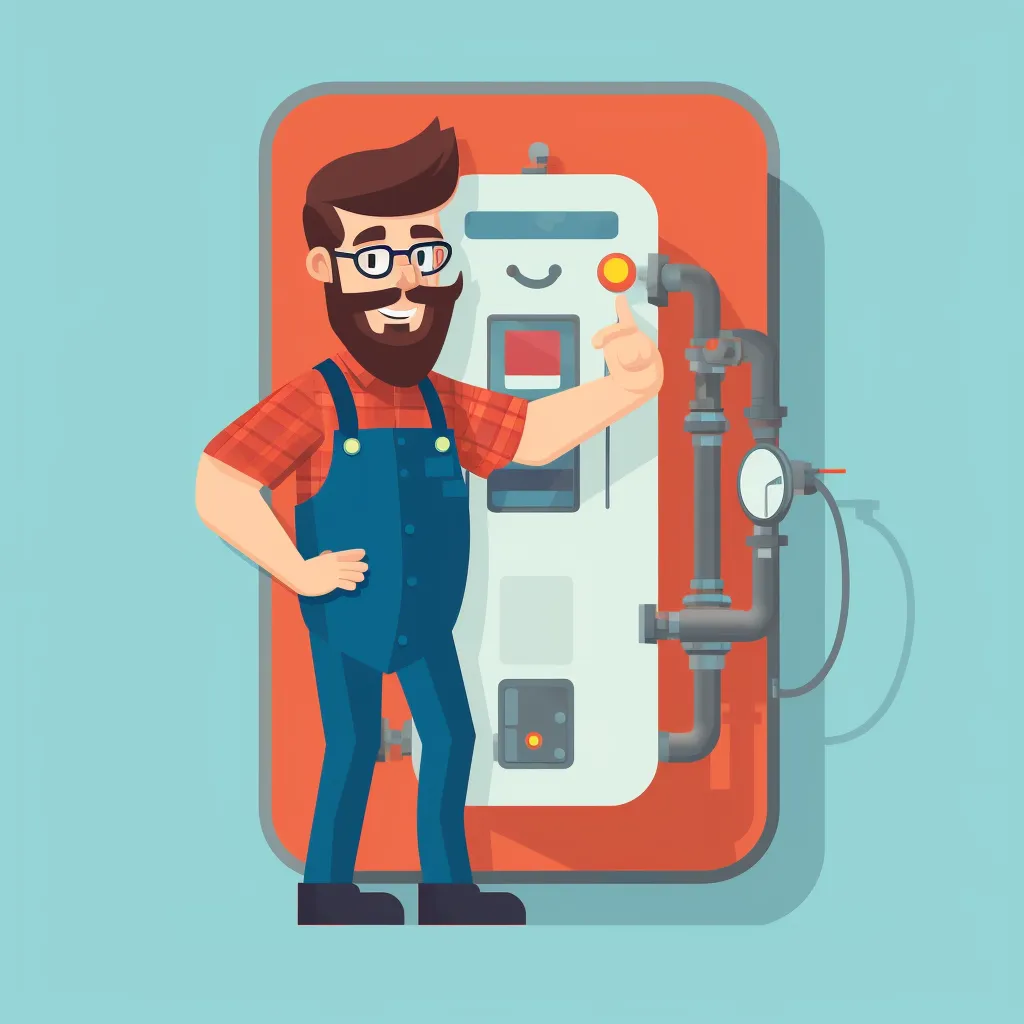
Maintenance needs of gas water heaters
Gas water heaters require regular maintenance to ensure optimal performance and prolong their lifespan. Regular maintenance tasks include inspecting and cleaning the burner, checking for gas leaks, flushing the tank to remove sediment buildup, and inspecting the venting system. Inspecting and cleaning the burner is essential for efficient operation. Over time, the burner may accumulate dust and debris, affecting its performance and potentially leading to incomplete combustion. A qualified technician can clean the burner and ensure that it is functioning properly. Gas leaks can be dangerous and should be detected and repaired promptly. Regularly inspecting the gas connections and fittings for any signs of leakage is crucial. If there is a strange odor of gas, or if you notice hissing sounds near the gas lines, immediately shut off the gas supply and contact a professional for repairs. Flushing the tank is another important maintenance task for gas water heaters. Over time, sediment can accumulate at the bottom of the tank, reducing efficiency and potentially causing damage to the tank. Draining and flushing the tank annually can help remove the sediment and prevent any potential issues. Lastly, it is crucial to inspect the venting system of the gas water heater. Adequate ventilation is necessary to properly vent the byproducts of combustion and prevent the accumulation of carbon monoxide. Ensure that the venting system is properly connected, free of obstructions, and functioning correctly.
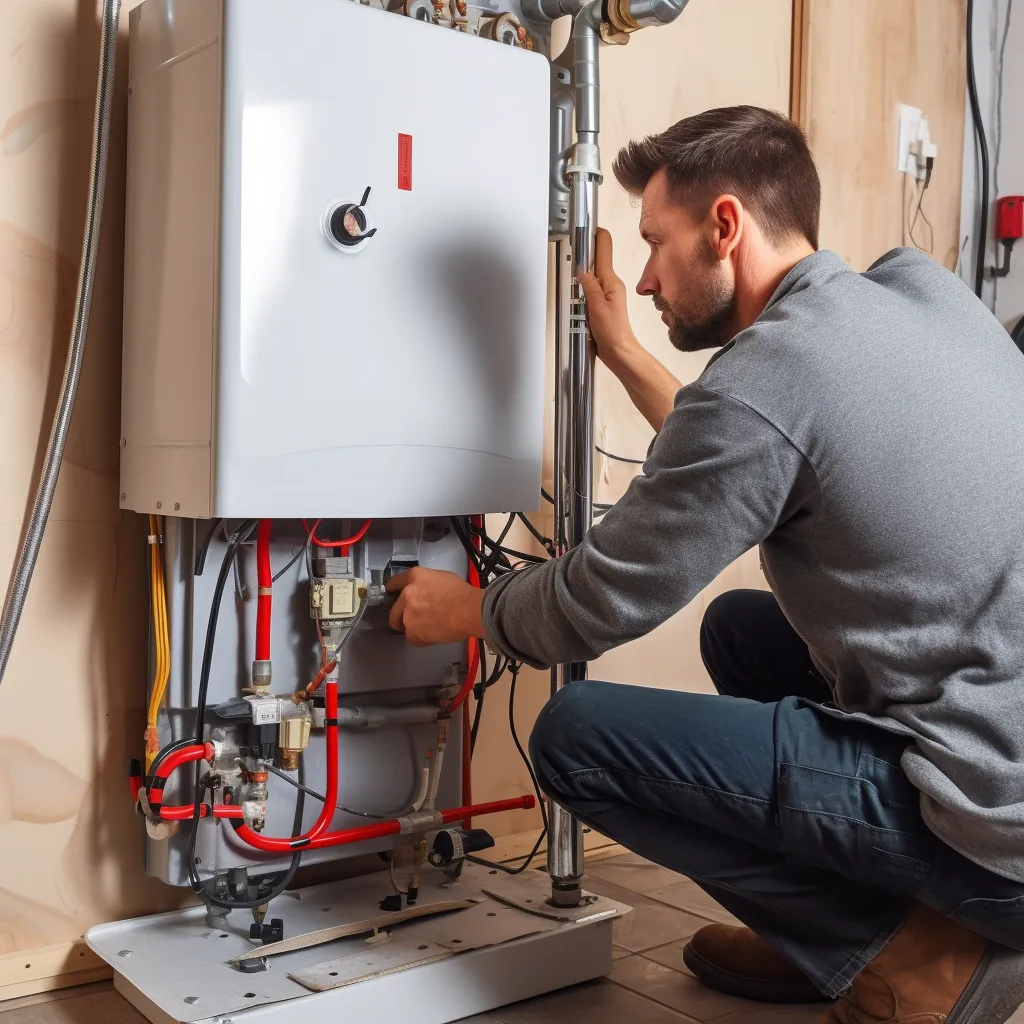
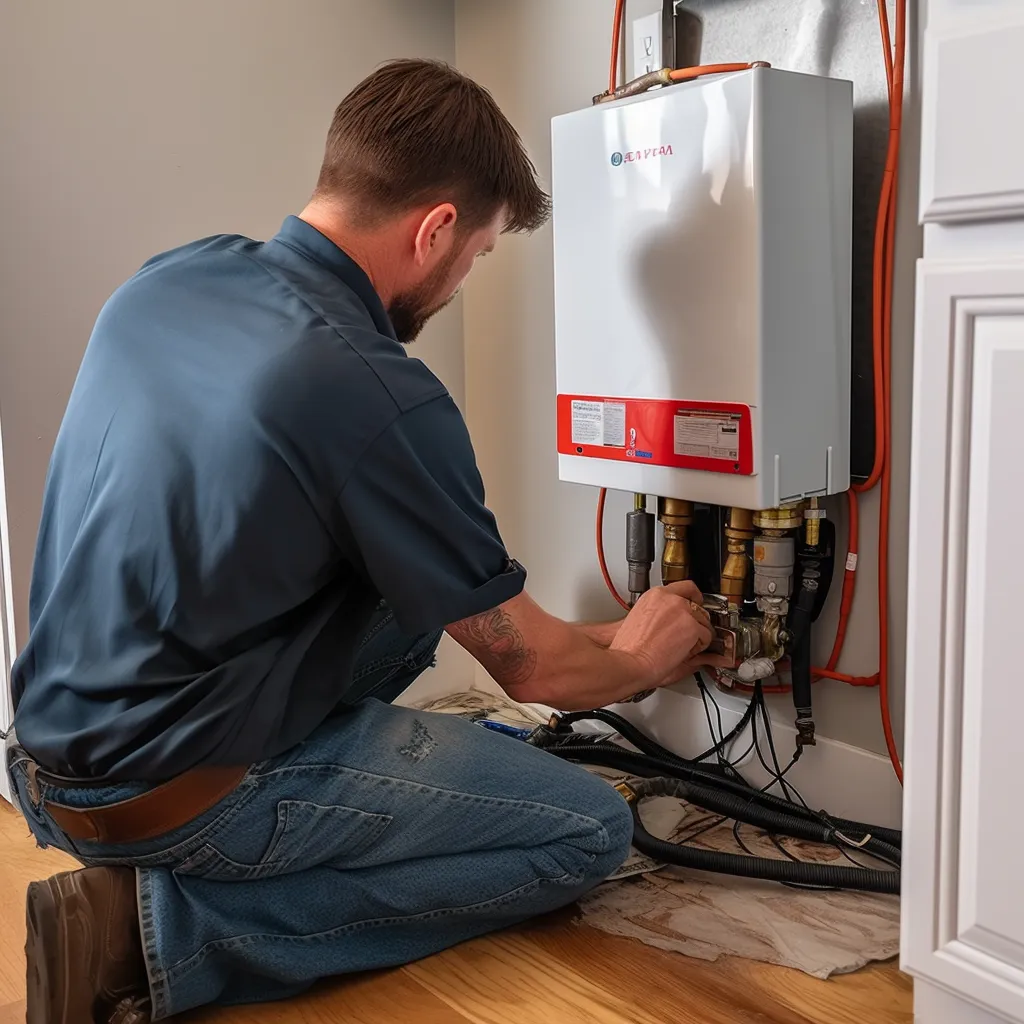
Safety considerations of electric water heaters
When it comes to electric water heaters, safety should always be a top priority. Whether you're considering a water heater replacement in Murfreesboro or simply want to ensure the safe operation of your existing unit, there are several important safety considerations to keep in mind. First and foremost, it is crucial to have your electric water heater installed by a professional. This will not only ensure that the unit is installed correctly, but also that all electrical connections are made safely and in compliance with local building codes. DIY installation can be risky, as improper wiring can lead to electrical hazards or even a fire. Regular maintenance is another key aspect of keeping your electric water heater safe. Make sure to regularly check for any signs of leakage, corrosion, or malfunctioning parts. A leaking water heater can not only cause damage to your property but also pose a serious electrical shock hazard. It's best to have a professional plumber inspect your water heater annually to identify and address any potential issues. Additionally, it is important to be aware of the proper operating temperature of your electric water heater. Most manufacturers recommend setting the temperature to 120 degrees Fahrenheit for optimal safety and energy efficiency. Higher temperatures can increase the risk of scalding injuries, especially for children or the elderly. Furthermore, consider installing a temperature and pressure relief valve (TPR valve) on your water heater. This valve helps to prevent excessive pressure buildup within the tank, which can lead to explosions or other dangerous situations. Regularly test the TPR valve to ensure it is functioning properly. Lastly, remember to follow electrical safety precautions when working around your electric water heater. Always ensure that the power to the unit is turned off before performing any maintenance or repairs. Avoid using extension cords or overloading electrical circuits, as these practices can increase the risk of overheating or electrical fires.
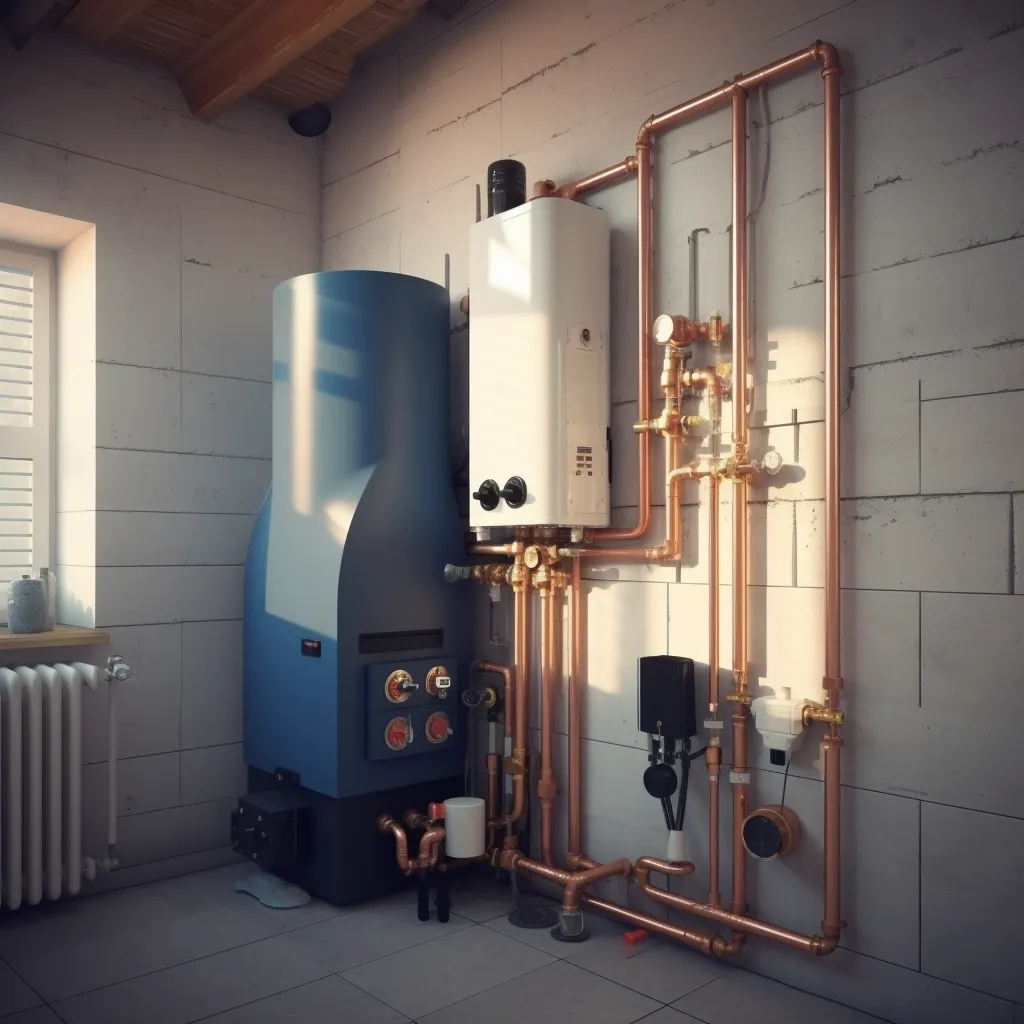
Safety considerations of gas water heaters
When it comes to the safety of gas water heaters, there are several important considerations to keep in mind. Gas water heaters can provide an efficient and reliable source of hot water for your home, but it's crucial to follow proper safety guidelines to prevent any potential hazards. First and foremost, it's essential to have your gas water heater professionally installed by a licensed and qualified technician. This ensures that all connections and fittings are properly installed, minimizing the risk of leaks or other potentially dangerous situations. A professional installer will also ensure that the heater is properly vented to allow for the safe disposal of combustion gases. Regular maintenance is another crucial aspect of ensuring the safety of your gas water heater. It's recommended to have a professional technician inspect and service your heater annually. This includes checking for any signs of damage, cleaning any buildup or debris inside the unit, and testing the pressure and temperature relief valve. Regular maintenance helps ensure that your water heater is operating safely and efficiently. Proper ventilation is also essential for gas water heaters. These units produce carbon monoxide, a colorless and odorless gas that can be deadly if it accumulates in an enclosed space. Make sure that your water heater is installed in a well-ventilated area to allow for the safe discharge of combustion gases. Additionally, it's crucial to have carbon monoxide detectors installed in your home, especially in close proximity to your water heater and sleeping areas. Another important safety consideration is to be aware of the signs of a potential gas leak. If you notice a strong and unpleasant odor (similar to rotten eggs) or hear a hissing sound near your water heater, evacuate the area immediately and contact your gas company or emergency services. Avoid using any electrical appliances or switches, as this can cause sparks and ignite the gas.
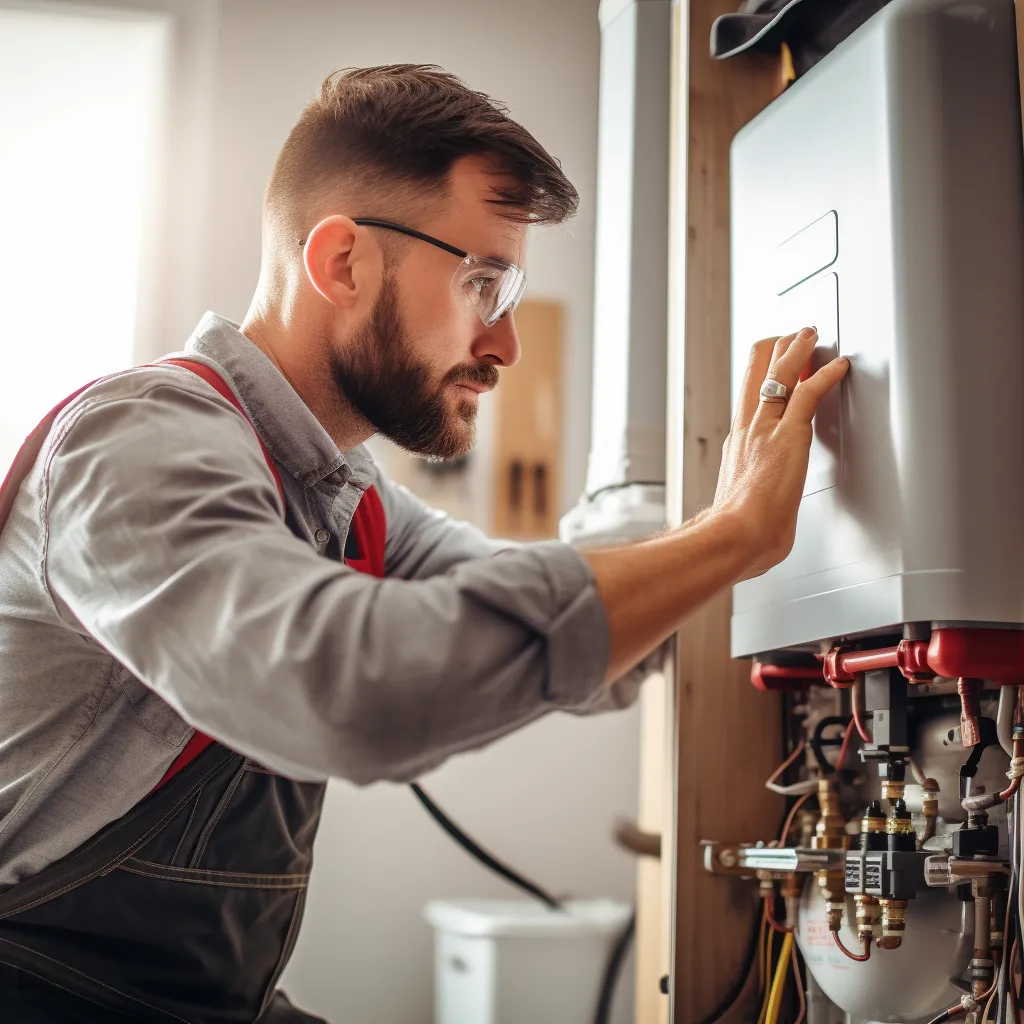
How to choose between electric vs gas water heater
If you're in the market for a new water heater, one of the first decisions you'll need to make is whether to choose an electric or gas-powered model. Both options have their advantages and considerations, so it's important to evaluate your needs and preferences before making a decision.
Consider the size of your household and the frequency of hot water usage. Determining the appropriate capacity for your new water heater is crucial to ensure that it meets the demands of your home.
Gas water heaters may provide long-term cost savings due to their efficiency and lower fuel costs. Although the initial purchase and installation costs of gas water heaters may be higher than electric water heaters, the savings achieved in the long run can make up for this difference. Gas water heaters typically have lower monthly operating costs, resulting in potential overall savings over time. On the other hand, electric water heaters have lower upfront expenses compared to gas heaters. The initial purchase and installation costs of electric water heaters are generally more affordable than those of gas water heaters. This can be advantageous for individuals with budget constraints or those looking for a cost-effective option when replacing their water heater.
Gas water heaters take the lead in terms of energy-saving and cost-effectiveness compared to their electric counterparts.
Electric water heaters are known for their low maintenance requirements. They do not require frequent inspections or intricate upkeep. On the other hand, gas heaters demand regular inspections to guarantee safety and avoid any potential malfunctions. Keeping up with inspections is crucial to ensure the proper functioning of a gas heater and to safeguard against any potential hazards that may arise.
Electric water heaters are a more environmentally friendly option. They generate fewer emissions and leave a smaller carbon footprint in comparison to their gas-powered counterparts.
Electric water heaters help to conserve natural resources and promote a cleaner and healthier environment for future generations. Making the switch to electric water heaters is a simple yet impactful step towards minimizing our environmental impact and embracing a more sustainable lifestyle.
By carefully weighing these factors, you can make an informed decision regarding water heater replacement in Murfreesboro. This ensures that you select a water heater that meets your priorities, provides reliable hot water supply, and offers long-term cost savings.
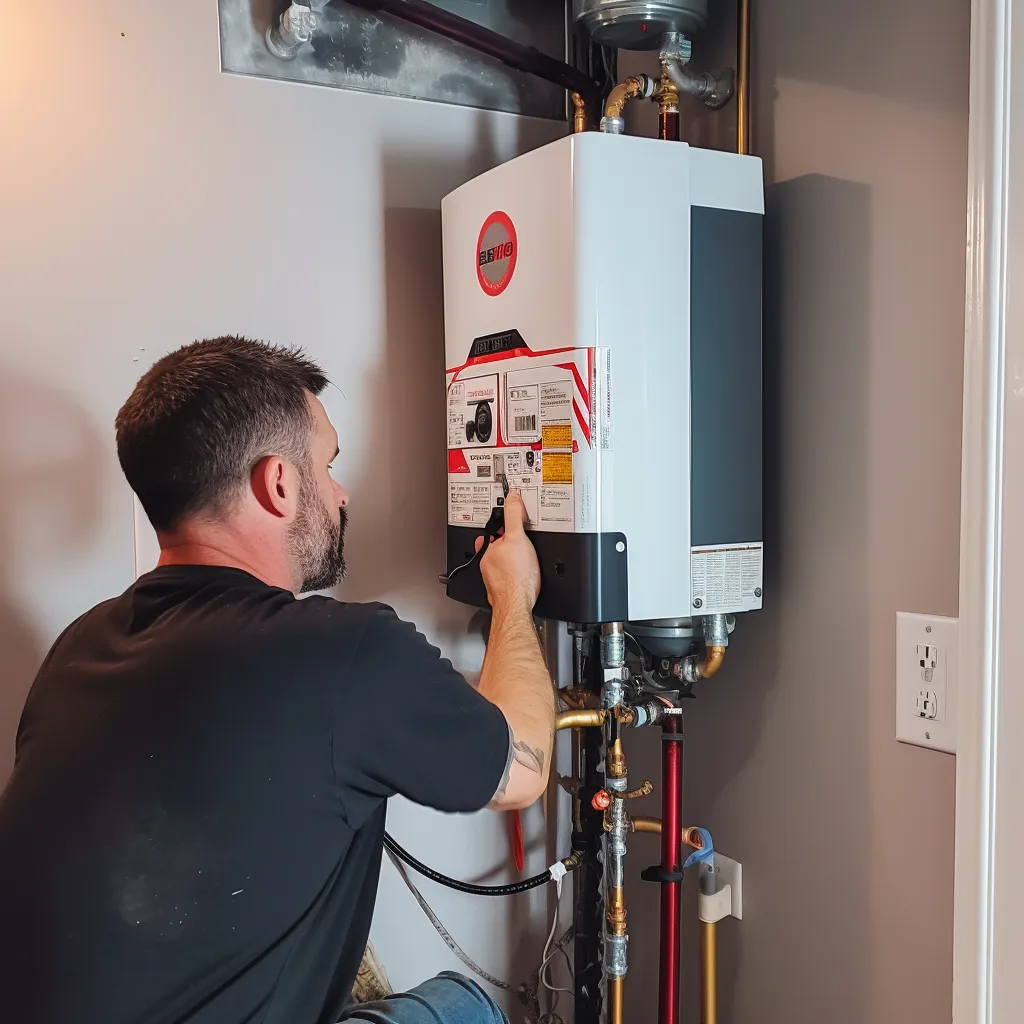
Reasons to hire a licensed professional to install your water heater
With water heater installation, it is crucial to hire a licensed professional. The process requires expertise and knowledge to ensure a safe and efficient installation. Here are a few reasons why you should always rely on a licensed professional for your water heater replacement:
Compliance with Regulations: Water heater installation must adhere to local building codes and regulations. Licensed professionals are well-versed in these guidelines and will ensure that your installation meets all the necessary requirements. This not only ensures your safety but also prevents any potential legal issues.
Expertise and Experience: Licensed professionals have extensive knowledge and experience in water heater installation. They have undergone rigorous training, education, and certification processes to obtain their license. Their expertise allows them to handle various types of water heaters and installation challenges efficiently.
Safety First: Water heaters can be dangerous if not handled properly. A licensed professional understands the potential risks associated with gas or electric connections and takes the necessary precautions. They know how to safely shut off the water supply, disconnect the old unit, and install the new one without compromising anyone's safety.
Proper Sizing and Placement: A vital aspect of water heater installation is selecting the correct unit size for your household's hot water needs. Licensed professionals will assess your requirements and recommend the appropriate size and capacity. They will also ensure that the unit is placed in an optimal location, considering factors like accessibility and ventilation.
Warranty and Insurance: Hiring a licensed professional provides added protection through warranties and insurance coverage. Most reputable professionals offer warranties on their workmanship and guarantees on the installed water heater. In case of any issues down the line, you can rely on their support and assistance to resolve them.
Long-term Cost Savings: While hiring a licensed professional may involve an upfront cost, it can save you money in the long run. A properly installed water heater operates more efficiently, reducing energy consumption and utility bills. Additionally, avoiding potential problems caused by incorrect installations can save you from costly repairs or replacements in the future.
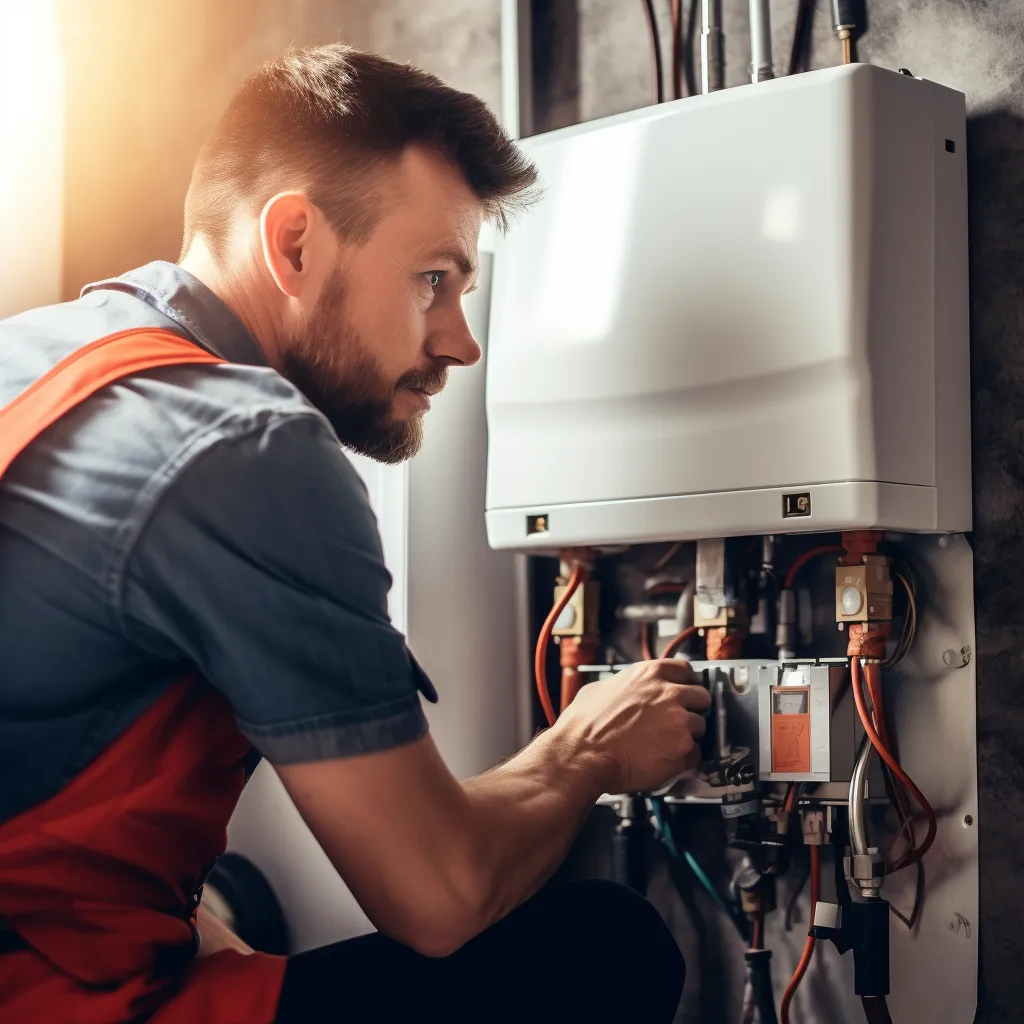
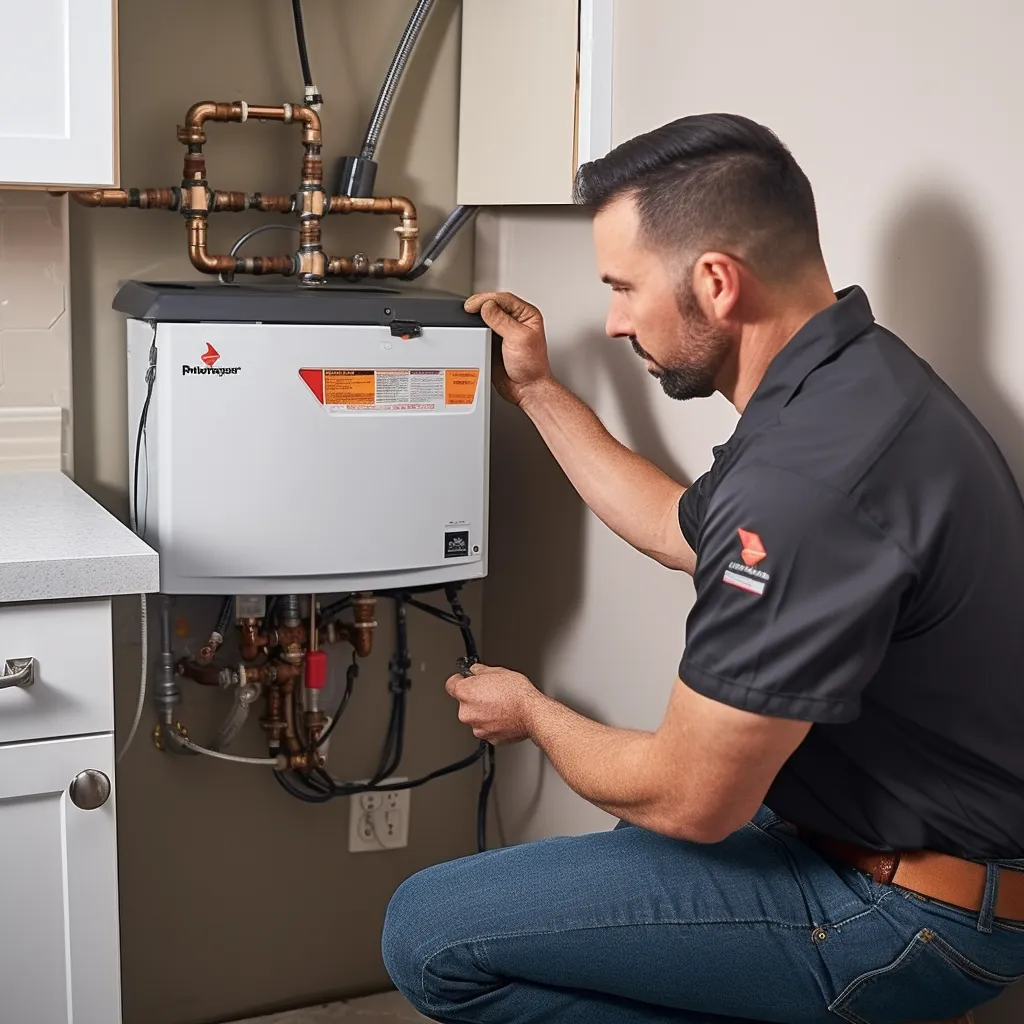
Be sure to thoroughly research options
When it comes to water heater replacement in Murfreesboro, conducting thorough research is essential. There are two main types to consider: electric and gas models, each with their own advantages and disadvantages. Safety considerations and installation requirements also play a crucial role in making the right choice. By carefully planning and taking these aspects into account, you can find the ideal water heater for your specific needs. However, it is important to emphasize the significance of hiring a licensed professional for the installation process. They have the necessary expertise to ensure that your water heater operates safely and efficiently. Don't underestimate the importance of proper installation – it can make all the difference in the long run. So, don't hesitate to seek the help of a licensed professional.
Contact Us
GET IN FULL TOUCH
PHONE: 615-671-4918
EMAIL:
steven@waterheatermurfreesboro.com
Rutherford Plumbing Heating & Cooling
Murfreesboro, TN 37128
